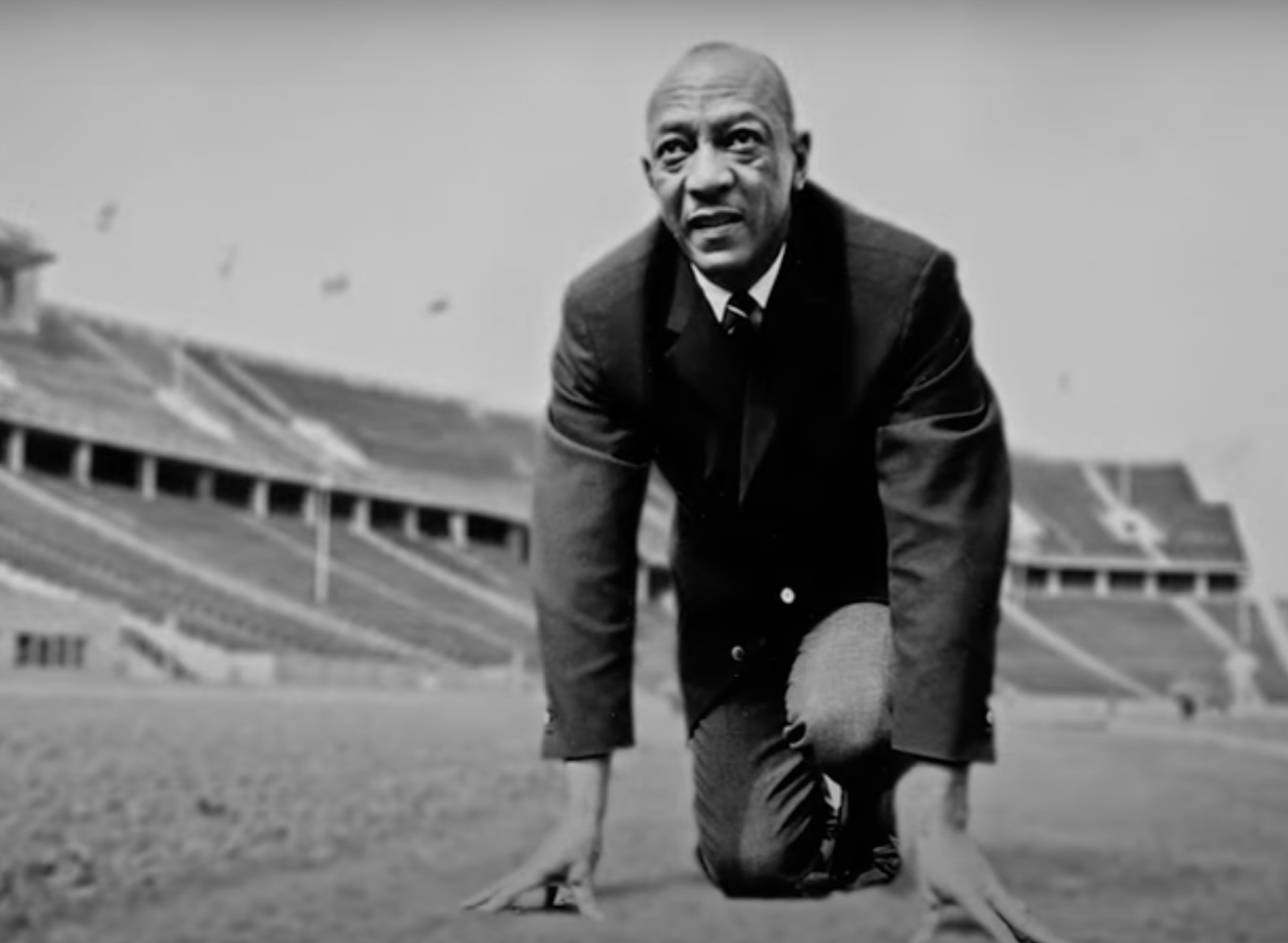
With the 2024 Summer Olympics set to begin next month, History Channel turns back the clock to the 1936 Summer Games and the historical achievements of sprinter Jesse Owens in a new documentary, Jesse Owens and the Berlin Olympics, now streaming on History.com.
The documentary, produced by NBA All-Star LeBron James’ The SpringHill Company and narrated by actor Don Cheadle, explores the Gold medal-winning Owens’ athletic triumph over Hitler’s Aryan supremacy agenda during the 1936 Olympics.
Jesse Owens and the Berlin Olympics director Andre Gaines talked to Multichannel News about the significance of Owens’ Olympics triumph and its relevance to a new generation of viewers. Gaines, who is developing a film about the late ESPN anchor Stuart Scott, also talks about the burgeoning sports documentary film genre in the interview, an lightly edited version of which appears below.
Multichannel News: How did you come to develop the documentary with LeBron’s SpringHill Company?

Andre Gaines: This is actually the second film that we produced with LeBron James – the last film that we did together was a film called After Jackie about a group of baseball players that came after Jackie Robinson, which we wanted to do leading into the [75th] anniversary of Robinson breaking the color barrier. I think the same is somewhat true here where we're heading into a brand new Olympic cycle, so it just made sense to try to tell the story of Jesse Owens and what he really did in Germany in 1936. I also think this was a real opportunity for us to be able to tell a full-bodied story about the man who, in many regards, is relegated to his accomplishments of winning four gold medals in 1936. There's just so much more, and it's a much more complicated and triumphant story than that.
MCN: What do you hope viewers take from the documentary?
AG: I think that perseverance is the key thing to take away. We're not all gifted with being the fastest man on the planet or being the best at anything on the planet, but we all have our own set of challenges and trials in the way of accomplishing our goals and our dreams. Jesse Owens left his wife and new baby in Jim Crow America to go over to Nazi-occupied Germany at the age of 21 and won four gold medals in front of the greatest evil that the world has ever known in Hitler. It's exactly the type of will and determination that we could all aspire to, and even if we took one-tenth of what he provided us, we could all use that in our lives and accomplish great things.
MCN: What did LeBron James and SpringHill bring to the table for the documentary?
AG: The Jesse Owens conversation was something that we started immediately after the last film. He's got an incredible team, and he himself is a staunch advocate of so many different causes, political prowess and things of this nature. It’s wonderful to actually have a partner who likes to be intellectually challenged, educated, and entertained all at once. We were glad to be working with them again.
MCN: Are we in a golden age of sports documentary filmmaking given the multitude of distribution outlets and the demand from viewers for such content?
AG: I think it’s a wonderful time to be able to tell stories in general, whether they're narrative films, documentary films, news stories or short films. There are so many more outlets to bring these stories to an audience. You can reach a global audience in a way that you couldn't do before just with cable or network television. That's really where the opportunity lies, and one that we've taken great advantage of over time.







